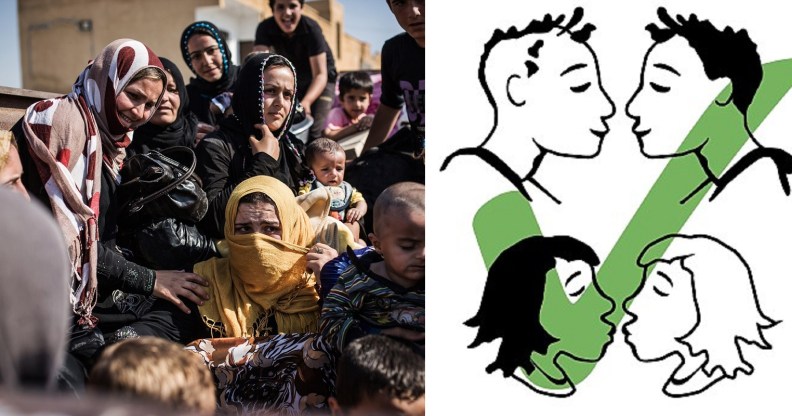Government issues cartoons to ‘explain’ gay people to refugees

The Austrian government is issuing a cartoon guide to refugees to explain Western views of homosexuality and consent.
The country’s interior ministry started drawing up the leaflets following mass sexual assaults in Cologne, Germany, over the New Year.
Amid allegations that some of the men involved in the attacks were refugees, the country has drawn up the leaflets to introduce ‘Western values’ to those fleeing the Syrian conflict.

A cartoon graphic from the leaflets published by the Daily Mail features two men kissing and two women kissing with a big green tick.
A picture of a man groping a woman has a red cross through it.
Meanwhile, authorities in Switzerland plan to distribute a similar leaflet next month, also in the wake of the Cologne attacks.
A spokesperson said: “After the attacks in Germany on New Year’s Eve, we received quite a few reactions.
“The concerns have been made, on the one hand, personally to social director Guido Graf, on the other hand we also received many e-mails from the general population.
“These were mostly from the right of the political spectrum. That is why it is important that this is a preventative measure. We currently have no problems with asylum seekers.”
The terrorist group known as Daesh/Islamic State – from which many of the refugees are fleeing – has overtly targeted gay men across Iraq and Syria.
A number of countries including the UK are committed to taking LGBT Syrians through resettlement schemes – but a report from the UK Parliament’s International Development Committee warned that LGBT refugees are still being under-represented.
The Committee noted that after fleeing their homes, LGBT refugees are frequently ostracised, and struggle to access even basic services.
The US, Canada and the UK have all confirmed that LGBT Syrians will be among those protected across their resettlement schemes – but the report found that under-registration remains an issue.

